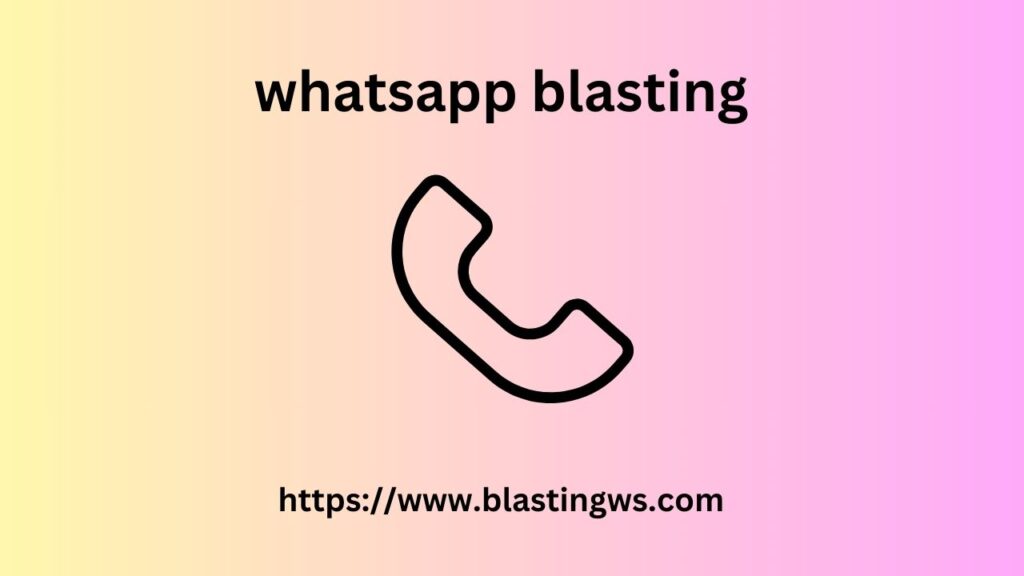WhatsApp for eCommerce: Turn Messages into Sales
In today’s digital age, where eCommerce has become an integral part of our lives, it is crucial to have effective communication and sales tools. This is where WhatsApp for eCommerce stands out as an innovative and powerful solution. his initial chapter will address the relevance of WhatsApp in the world of eCommerce, highlighting its impact and the opportunities it offers for online businesses.
First, we’ll explore how WhatsApp has whatsapp blasting revolutionized the way brands interact with their customers, providing a direct and personalized channel for engagement and support. With over globally, WhatsApp offers a huge platform to connect with your target audience.
Understanding WhatsApp for eCommerce
WhatsApp for eCommerce is more than just a messaging app; it is a revolutionary sales tool. At the core of eCommerce operations, it facilitates direct and effective communication between businesses and customers. With a familiar interface and a wide user base, WhatsApp has become an indispensable channel for digital businesses.
The advantages of using WhatsApp in the eCommerce field are multiple:
- Automation and Efficiency : Through chatbots and automated responses, WhatsApp for eCommerce optimizes time and resource management. statistics , the use of WhatsApp for eCommerce enquiries has increased significantly, with 40% of users how to do marketing in 2024: an az guide preferring to receive purchase notifications via WhatsApp. Additionally, 67% of WhatsApp users say they are more likely to purchase from a business they can contact via the app. These figures demonstrate the positive and growing impact of WhatsApp on eCommerce.
WhatsApp for eCommerce is not just a communication channel, but a powerful sales tool that opens up new possibilities for online businesses. By integrating WhatsApp into your eCommerce strategy, you can improve the customer experience, increase efficiency and boost your sales.
Strategies to Convert Messages into Sales
In the world of eCommerce, WhatsApp is a tool that can transform the way businesses communicate with their customers, turning simple interactions into sales opportunities. Here are some key strategies to achieve this:
- Personalization is Key : Sending messages that feel personal and unique can significantly increase conversion rates. Use customer information to create messages that address their specific interests and needs.
- Quick and Effective Responses : Response speed is crucial on WhatsApp. Use automated tools like chatbots to provide instant responses, ensuring that customers don’t wait too long for a reply.
- Exclusive Offers and Promotions : Encourage your customers to make purchases by offering special discounts and promotions through WhatsApp. This not only increases sales but also fosters customer loyalty.
- Integration with your Website and Social Media : Connect your WhatsApp strategy with other digital channels. This provides a cohesive customer experience and increases cross-selling opportunities.
WhatsApp Integration with your eCommerce Platform
Integrating WhatsApp into your eCommerce platform is a crucial step to make the most of its benefits. Let’s see how you can do it effectively:
- Tools and Plugins : There are a number of tools and plugins that make it easy to integrate WhatsApp into your website. Plugins like ‘WhatsApp Chat’ and ‘Click to Chat’ allow your website visitors to start conversations directly from your page. These tools are easy to install and configure, offering a seamless user experience and increasing the likelihood of interaction.
- Order and Inquiry Management : Using WhatsApp to manage customer orders and inquiries is an effective method to improve customer experience. Implement a tagging system to organize inquiries and ensure that each customer receives a deb directory personalized and timely response. Quick response not only improves customer satisfaction but also increases conversion rates.
- Chatbot Automation : For efficient management, consider using WhatsApp chatbots. These can handle frequent queries, confirm orders, and provide status updates, allowing your team to focus on more complex queries and sales strategy.







